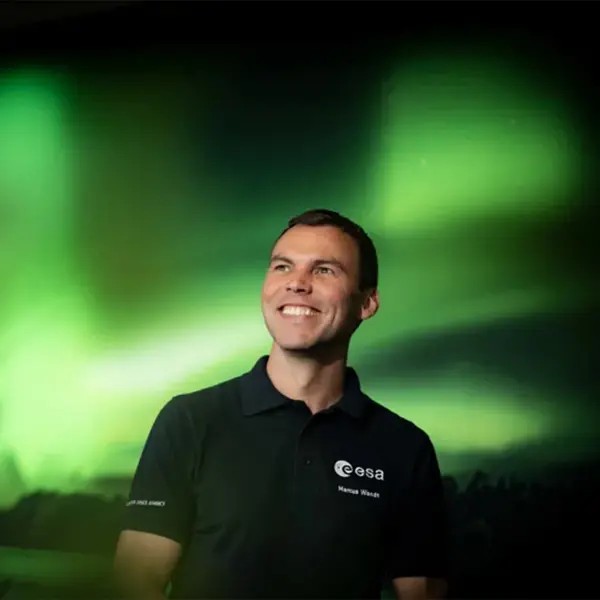

When Julia Ravanis is awarded Alumnus of the Year, it is not only a recognition of her academic sharpness. It is also a celebration of a person whose curiosity and ability to move seamlessly between technology and the humanities, opened new perspectives. She made research accessible to a wider audience through her books and theatre projects.
Julia has been a doctoral student in history of technology at Chalmers, where her research explored Swedish computer history between 1955 and 1975. She examined how programming was carried out, how gender roles were perceived within the profession, and the role of computers in Swedish military research. Questions that help us understand today’s technology with the help of history.
But her path began in another world. As a child, she was fascinated by the night sky and loved counting, while dreaming just as much of becoming an actor or jewellery designer. It was not obvious that she would become an engineer, but with a growing interest in physics and mathematics and a romanticised image of Gothenburg (inspired by Håkan Hellström’s songs), Chalmers became the natural next step.
– As I grew older, it felt more reasonable to become an engineer than an actor, Julia recalls.
And it was not only physics that captivated her. During her studies, Julia was active in Djungelpatrullen, which organised pubs for physics students. It was a time marked by a strong sense of community a feeling of stepping into a new world with its own rituals, language, and songs.
I will never forget Jana Madjarova’s first math lectures. That feeling of how a new world emerged on the blackboard – it was magical.
After getting a Master of Engineering in 2019, her journey took a turn. What attracted her most was writing, reading, and thinking critically about the role of science in society. This led to a Master’s degree in the history of ideas and learning, followed by doctoral studies in the history of technology.
At the same time, Julia began writing. She made her debut in 2021 with The Beauty in Chaos, an essay collection where theoretical physics meets philosophy and storytelling. In August 2024, she published Emmy’s Theorem, a book about the pioneering mathematician Emmy Noether – a work awarded the Gerard Bonnier Essay Prize. Critics described it as “poetic and beautiful”. In spring 2025, The Beauty in Chaos was staged at Folkteatern in Gothenburg, an example of how her texts reach beyond academia and seek new platforms.
– My driving force is curiosity. But also breaking down the boundaries between science and the humanities. The most exciting questions are found in the borderland between them, Julia explains when asked what motivates her.
That Julia is the first to receive the Alumnus of the Year award feels significant. She shows that a technical background does not always have to lead to a traditional engineering career. An interest in technology can coexist with artistic and philosophical thinking. For students and alumni alike, especially those with dual interests, her journey is an inspiration.
– The dream is to make a living as a writer and publish more books. That is where I want to be in five or ten years.
Today, Julia combines her writing with a new part-time role at the Department of Physics at Chalmers, where she leads the development of a popular science platform. The aim is to support researchers who want to reach a wider audience, through open lectures and conversations, while bringing humanistic perspectives into science education. The work is carried out in collaboration with the journal Glänta, where Julia has long been an editor, a natural step in her ambition to make science more accessible.
Wherever her path takes her, one thing is clear: Julia Ravanis will continue to ask unexpected questions, push boundaries, and open new conversations in research, in literature, and in society at large, always with curiosity as her guiding star.
Learn more about the Alumni of the Year.
Hear Julia Ravanis speak at Alumni Day on 29 September.



